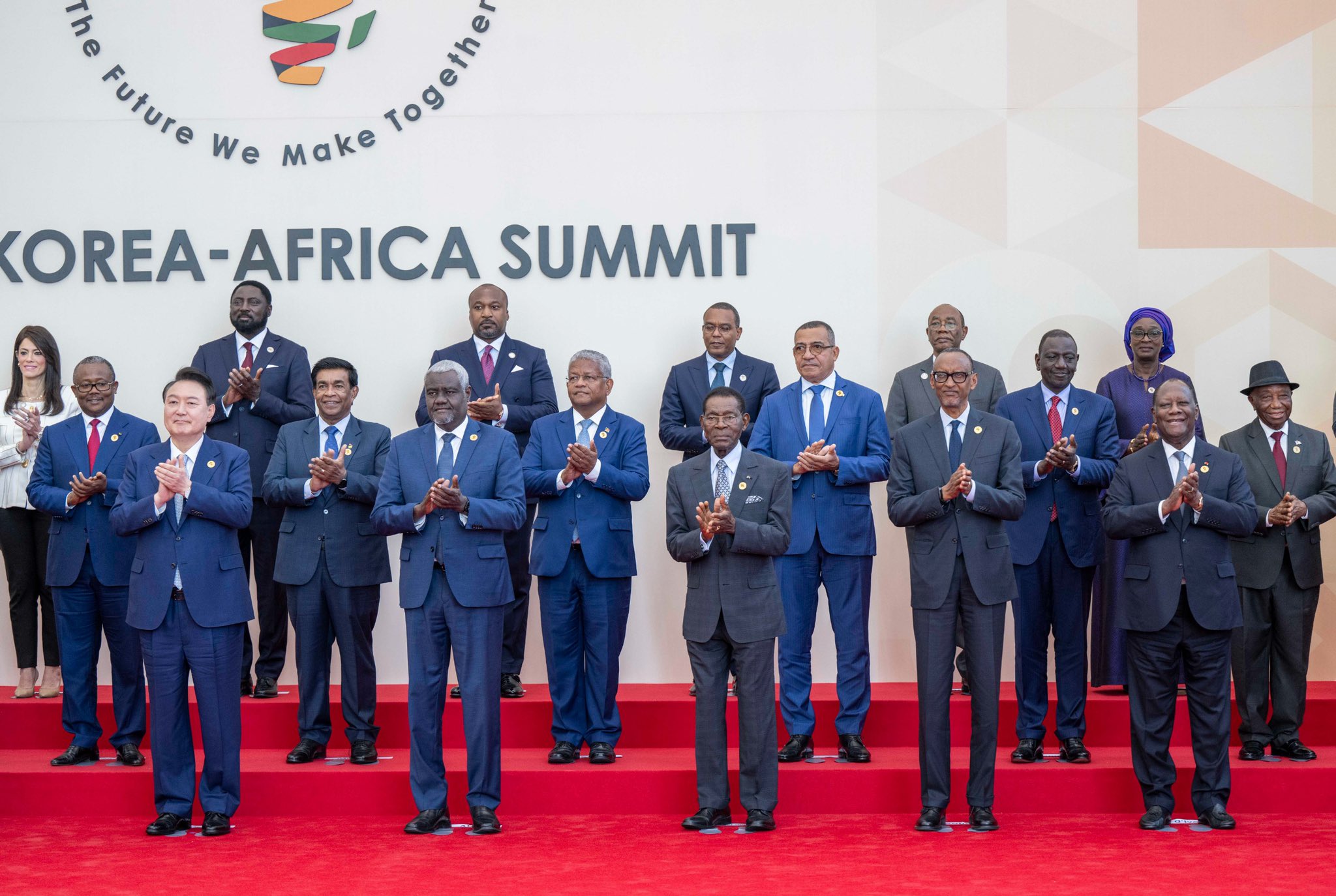President Paul Kagame has urged African nations and South Korea to deepen cooperation in artificial intelligence, robotics, energy transition, and nuclear technology during his address at the first Korea-Africa Summit on Tuesday.
Kagame said the two-day summit in Seoul was long overdue, highlighting the positive and productive relationship between Africa and South Korea.
“Korea is a global pivotal state, and Africa is a pivotal continent,” Kagame said. “It is only natural for us to draw closer together, in the years ahead, for many reasons.”
He pointed to a shared understanding of the importance of sovereignty, independence, and the fight for accountable and inclusive governance as a foundation for mutual respect and admiration between Africa and South Korea.
Kagame questioned why Africa hasn’t yet become a high-income continent, suggesting the continent can achieve faster growth by focusing on stability, health, education, and technology.
“All of this is possible, depending on how we address our governance challenges. Africa’s young people need these opportunities,” he said.
The Rwandan leader credited partnerships with Korea for fostering innovation and bringing advanced technologies to Africa more quickly.
“This Summit serves to remind us that even more can be done,” Kagame said. “From artificial intelligence and robotics, to small modular nuclear reactors, to driving the energy transition with critical raw materials, Africa and Korea should be working side-by-side.”
Kagame emphasized the potential benefits for South Korea by connecting with Africa’s young population and the African Continental Free Trade Area.
“Africa will be a central driver of global growth before too long, so long as we do not take our future for granted,” Kagame said, calling for continued partnerships between Africa and South Korea.
Co-chaired by South Korean President Yoon Suk Yeol and African Union Chairperson Mohamed El Ghazouani of Mauritania, the inaugural Korea-Africa Summit aims to strengthen cooperation between the Asian nation and the African continent.

